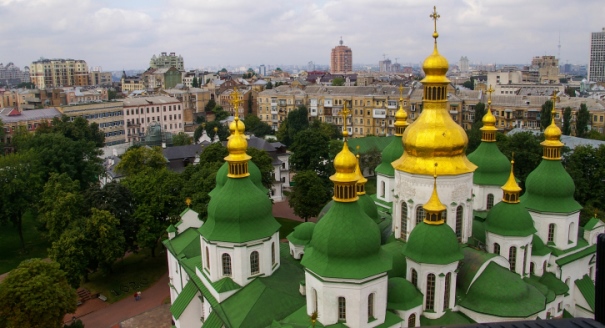Amid the Cold War rhetoric and a Western scramble for policy responses to Russian President Vladimir Putin’s actions in Crimea, international politics has begun to eclipse Ukraine’s internal political dynamics. The wider relationship between the West and Russia is being renegotiated—and Ukraine is only one part of that relationship.
Western sanctions against Russian officials and business elites, punitive measures such as expelling Russia from the G8 group of industrialized nations, and a plan to reduce European energy dependence on Russia have dominated recent news and analysis.
By shifting the spotlight away from Ukraine, however, the West risks missing an opportunity to reform the Ukrainian state and limit future instability in the region. Ukraine’s interim government, made up of representatives of parties opposed to ousted president Viktor Yanukovych and of activist protest leaders, is in no rush to bring forward parliamentary elections. A presidential poll scheduled for May 25 will generate only a partial renewal in Ukrainian politics.
Contrary to an initial plan brokered by EU foreign ministers and Russia, Ukraine’s is not a “national unity” government that represents the whole political scene and regional interests. The key challenge for Ukraine is to rebuild legitimate rule within the country as a whole. That requires a decisive shift from the uncertainties of street politics to the order of political parties and state institutions. A new constitution will need to ensure a clear balance of legislative and executive powers and prevent a repeat of the many deadlocks of recent years.
Ukraine’s acting Prime Minister Arseniy Yatsenyuk has put a range of options on the table, including the principle of a decentralized structure for Ukraine. So far, he has provided few details. Without the West helping to create a space in which Ukraine can address these and other constitutional issues, they will add up to little more than a conciliatory gesture in Russia’s direction. The opportunity for change that comes with a crisis should not be missed.
It is in the nature of institutions to think and act within the parameters they set for themselves. There is an inbuilt tendency to continue along a predefined path rather than pause and reflect. In the EU, this pattern is enhanced by the difficulty of generating a policy agreement among the 28 member states in the first place. Moreover, the EU specializes in complex procedural forms of engagement. Once a process is put in place, it develops its own momentum.
The EU’s interaction with countries in its neighborhood—modeled on the accession process despite the lack of an explicit membership perspective—is a case in point.
Under pressure to act in response to Russia’s intervention in Ukraine, the EU returned to an association agreement that Yanukovych did not sign in November 2013. In an almost stubborn insistence on a model that was tried and failed, the EU did not call into question the nature of the accord itself. Instead, the political part of the agreement was split off from the more substantive economic part and was signed by Ukraine’s interim government on March 21.
The EU tinkered with an existing institutional template rather than starting afresh. By not even waiting until after Ukraine’s next presidential election, as originally planned, the EU aimed to rebuff Russia and reassure Ukrainians. This has temporarily boosted the interim government in Kiev, but it may also have limited the scope for longer-term political engagement with Ukraine and, by extension, with Russia.
With every Western endorsement, the current Ukrainian government superficially looks more stable and credible. The most challenging political and economic issues are put off as long as international politics chooses to ignore them. It is high time for Western actors to refocus their attention on Ukrainian politics and encourage rebuilding Ukraine from within.
Before the current crisis erupted, Ukraine had come further in terms of state- and nation-building since gaining independence in 1991 than observers are led to believe. Building a state in less than twenty-five years is no small feat, especially in a country as regionally diverse as Ukraine.
To reconnect with the achievements of the first twenty years and put them on a more stable institutional footing, Ukraine needs to add early parliamentary elections to its political timetable. Kiev must also prepare for thorough constitutional reforms that tackle in particular the distribution of executive and legislative power and the decentralization of powers to the regions.
It is on these issues that the West can make a real contribution to the future stability of a democratic Ukraine. Western assistance can help Ukrainians build a state capable of protecting itself from Russian intervention and of making its own long-term choices.
Gwendolyn Sasse is a professorial fellow in politics at Nuffield College and university reader in the Department of Politics and International Relations at the University of Oxford.






